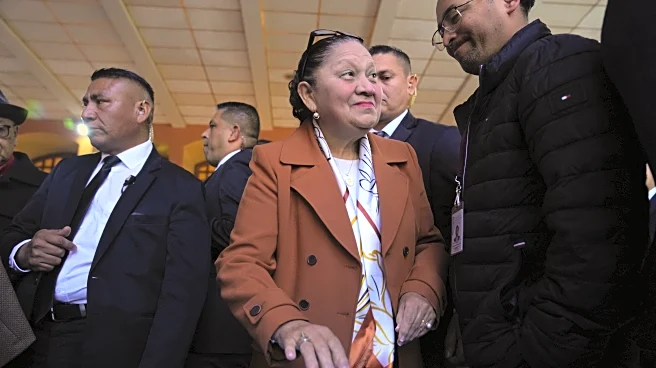What's Happening?
The COP30 climate summit in Belém, Brazil, is facing significant logistical and policy challenges. Accommodation shortages have led to unconventional solutions, such as using local 'love motels' to house delegates. The summit, intended to be a landmark
event for climate action, is overshadowed by major polluters missing deadlines for climate goals and Brazil's controversial decision to approve oil drilling at the Amazon's mouth. President Trump has criticized climate change as a 'con job,' and the U.S. will not send a delegation, further complicating international climate diplomacy.
Why It's Important?
The COP30 summit is crucial for global climate policy, as it aims to address the urgent need for reducing climate pollution. The logistical issues and policy contradictions, such as Brazil's oil drilling approval, highlight the challenges in achieving cohesive international climate action. The absence of the U.S., a major climate polluter, could weaken global efforts and embolden other countries to delay or dilute their commitments. The summit's outcomes could significantly impact global climate strategies and the future of fossil fuel use.
What's Next?
The summit's success depends on overcoming logistical hurdles and achieving meaningful commitments from participating countries. The international community will closely watch how Brazil and other major polluters address their climate responsibilities. The U.S.'s stance may influence other nations' positions, potentially affecting future climate negotiations. The summit's ability to foster genuine progress in climate action remains uncertain, with potential implications for global climate policy and environmental sustainability.
Beyond the Headlines
The summit's challenges underscore the complex interplay between economic interests and environmental responsibilities. Brazil's oil drilling decision reflects the tension between economic development and environmental conservation. The use of 'love motels' for accommodation highlights the broader issue of infrastructure inadequacy in hosting large international events. These factors illustrate the broader systemic issues that complicate global climate governance.

















